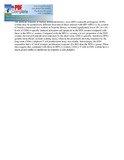Cd4+ T Cell Responses In Hiv-exposed Seronegative Women Are Qualitatively Distinct From Those In Hiv-infected Women
| dc.contributor.author | Alimonti, JB | |
| dc.contributor.author | Koesters, SA | |
| dc.contributor.author | Kimani, J | |
| dc.contributor.author | Matu, L | |
| dc.contributor.author | Wachihi, C | |
| dc.contributor.author | Plummer, FA | |
| dc.contributor.author | Fowke, KR | |
| dc.date.accessioned | 2013-06-28T14:56:26Z | |
| dc.date.available | 2013-06-28T14:56:26Z | |
| dc.date.issued | 2005-01 | |
| dc.identifier.citation | J Infect Dis. 2005 Jan 1;191(1):20-4. Epub 2004 Dec 1 | en |
| dc.identifier.uri | http://hinari-gw.who.int/whalecomwww.ncbi.nlm.nih.gov/whalecom0/pubmed | |
| dc.identifier.uri | http://erepository.uonbi.ac.ke:8080/xmlui/handle/123456789/41969 | |
| dc.description.abstract | The immune response of human immunodeficiency virus (HIV)-exposed seronegative (ESN) women may be qualitatively different from that in those infected with HIV (HIV(+)). In a cohort of female commercial sex workers in Nairobi, Kenya, we found significantly lower (P< or =.01) levels of CD4(+)-specific immune activation and apoptosis in the ESN women compared with those in the HIV(+) women. Compared with the HIV(+) women, a lower proportion of the ESN women showed p24 peptide pool responses by the short-term, CD4(+)-specific, interferon (IFN)- gamma intracellular cytokine staining assay, whereas the proportion showing responses by the long-term, CD8(+)-depleted T cell proliferation assay was similar. Interestingly, the ESN responders had a 4.5-fold stronger proliferation response (P=.002) than the HIV(+) group. These data suggest that, compared with those in HIV(+) women, CD4(+) T cells in ESN women have a much greater ability to proliferate in response to p24 peptides. | en |
| dc.language.iso | en | en |
| dc.publisher | University of Nairobi | en |
| dc.title | Cd4+ T Cell Responses In Hiv-exposed Seronegative Women Are Qualitatively Distinct From Those In Hiv-infected Women | en |
| dc.type | Article | en |
| local.publisher | Department of Medical Microbiology | en |
Files in this item
This item appears in the following Collection(s)
-
Faculty of Health Sciences (FHS) [10378]

